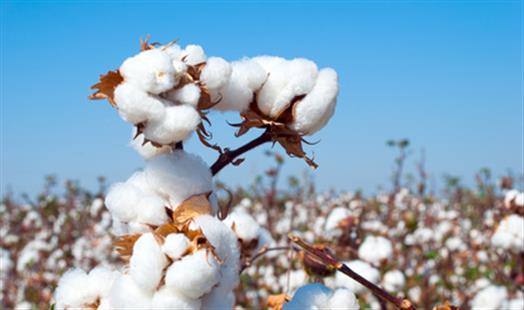Company hopes dicamba ban will be lifted (UPDATED)
by July 5, 2017 12:25 pm 400 views

At least one company that isn’t authorized to sell dicamba in Arkansas after April 15 thinks the governor and the state’s Plant Board are wrong to ban its sale and use in the midst of hundreds of damage claims filed by farmers. Monsanto North American Crop Production Systems Lead Ty Witten told Talk Business & Politics the herbicide used to treat cotton is a critical tool for farmers, and state officials need to reconsider what action to take.
“It’s important for weed protection … Arkansas is an outlier from what I’m hearing,” he said. “We’re not hearing reports like this in other states.”
Eugenia dicamba is the only brand approved to be used in Arkansas after April 15. Monsanto has its own brand, and it’s up to individual states to decide what chemicals will be allowed to be used on crops, he said. Monsanto is working on its labeling so that its dicamba product can be used in Arkansas by the start of the 2018 growing season.
Gov. Asa Hutchinson ordered the ban and sale of Eugenia dicamba last week following a recommendation by the Arkansas State Plant Board. The ban comes after hundreds of damage complaints were filed, according to the University of Arkansas Division of Agriculture Research Extension. Soybeans without the tolerance, peanuts and some fruit and garden crops are highly sensitive to dicamba. Drift from cotton fields to these other fields is the most likely culprit, according to experts.
The Plant Board has been charged by Hutchinson and a new state law to assess penalties of greater than $1,000 but not more than $25,000 for violations of dicamba rules that result in significant crop damage cases. Hutchinson instructed the Plant Board and the Department of Agriculture to create a task force to review dicamba technology, to investigate its use and to develop a long-term solution for Arkansas.
UPDATE: The Arkansas Legislative Council Executive Subcommittee on Wednesday (July 5) deferred a decision on the proposed ban on the sale and use of dicamba until this Friday. House Speaker Jeremy Gillam, R-Judsonia, made a motion to recess until members of the Joint Agriculture, Forestry, and Economic Development Committee could meet Friday, July 7 at 9 a.m. to hear testimony on both sides, and then make a recommendation to the executive subcommittee, which meets at 1 p.m. Until a decision is made, current regulations stand.
In 2016, there were 32 dicamba drift-related complaints filed with the ASPB. The chemical is highly-regulated in Arkansas because of how sensitive soybeans are to it. Complaints this year cover 19 counties: Ashley, Chicot, Clay, Craighead, Crittenden, Cross, Desha, Greene, Jackson, Jefferson, Lee, Little River, Mississippi, Monroe, Phillips, Poinsett, St. Francis, White and Woodruff. As of mid-June, Mississippi County had the highest number of complaints at 81, Craighead had 34, and Crittenden 32.
Hutchinson announced that he has approved the promulgation of a proposal titled “Pesticide Enforcement Response Regulation.” The Plant Board presented it to the governor as both an emergency rule and a regularly proposed rule, which will allow it to remain in effect beyond the 120-day period of the emergency rule.
The proposal is in response to Act 778 of 2017, which was an amendment to the Arkansas Plant Act of 1917. Act 778 does not take effect until August 1, 2017. However, Gov. Hutchinson’s decision to promulgate the emergency rule will authorize the Plant Board to act quickly, provided the Legislative Council approves the rules, according to his office. The soonest legislative oversight might be considered is at a meeting scheduled for July 21, 2017.
Unusually rainy and windy conditions this year could have negatively impacted dicamba drift in northeastern and eastern Arkansas row crops fields, but Witten said there could be other factors. Some farmers might be using old dicamba or products not approved for use. Application methods and protocols might not have been followed. He thinks the state needs to do more research into these other factors before a ban is put into place.
Researchers say physical drift accounts for at least 80-90% of all the dicamba injured fields that has been observed. About 10-20% of the injury has occurred even when everything appears to have been done correctly. One possibility under review is that dicamba droplets are attaching to dust particles after applications are made. There is growing evidence in the fields that points toward dicamba moving with dust.
